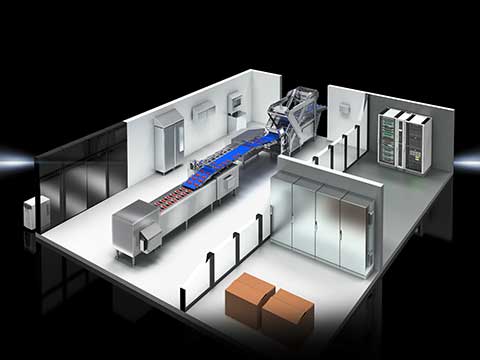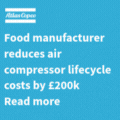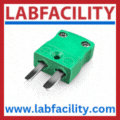
Posted to News on 15th Apr 2024, 15:00
Hygienic Design enclosures for the food industry
Hygienic Design enclosures from Rittal that offer numerous advantages over conventional enclosures have become the standard housing for electrical controls because they permit rapid cleaning and prevent the formation of pockets of dirt.

(See Rittal at FoodManufacturing.Live, 15 October 2025, on stand 15)
Hygienic production is an absolute must in the food industry. It must be possible for machines, systems and their components to be quickly and easily cleaned, particularly in open processes. The materials used and the geometry of the production plants have a decisive influence on cleanability.
Downtimes during production represent the worst case for plant operators. They mean ever lower productivity and, consequently, reduced sales. However, in hygienic-critical production situations, longer downtimes are unavoidable due to the large amount of cleaning needed. For example, up to 40 per cent of the time is spent at a standstill due to cleaning procedures in meat-processing plants. This time must be kept as short as possible in order to increase productivity but not at the expense of cleanliness and hygiene, because ultimately the health of the final consumers is what counts.
One starting point is to design machines and plants and the housings and enclosures that accommodate controls so that they are easier to clean. However, industrial wall-mounted enclosures and standard enclosures for machines and plants are not the prerequisite for fast, simple and hygienic cleaning. This is because open cavities make cleaning more difficult; they are dirt traps and thus a breeding ground for germs. Horizontal surfaces, where water cannot run off properly, also create the conditions for contamination.
International standards
The high hygienic standards involved in food and beverage production, in cleanrooms or in the chemical industry pose great challenges for plant constructors and production planners. Guidelines can be found, for example, in the Machinery Directive 2006/42/EC, which came into force in Europe on 1 January 2006, and in supplementary standards on the hygienic requirements to be met by machinery and equipment such as EN 1672-2 and EN ISO14159.
For processors of foodstuffs, the European regulation EU 852/2004 on food hygiene is one of the binding regulations. These regulations define the requirements of the machinery used with foodstuffs, as well as providing guidelines for the design of hygienic machines.
Parallel to these regulations, the so-called European Hygienic Engineering and Design Group (EHEDG) was founded in 1989 with the principal goal of promoting hygiene measures during the processing and packing of food products. The group is a consortium of equipment manufacturers, food processing companies, research institutes and public health authorities. Rittal has been a sponsor of this organisation since 2008.
Hygiene and hygienic design
However, despite all these standards and guidelines, hygienic design means one thing above all: Provisions for the simple and thorough cleaning of everything that could come into contact with foods from the machine to its enclosure. Here, it is especially important to avoid dead spaces, undercuts of any kind, as well as joints without radius, since such points are particularly prone to product residue accumulations, which in turn represent an ideal substrate for microbial contamination.
For the same reason, surfaces with recesses such as the uncovered threads of screw connections, or screw heads with internal hexagons (Allen screws) or Torx screws are not allowed. Corners and joints must be smooth, gap-less and cleanly rounded. To ensure that sprayed water is able to run off the surfaces of housings and enclosures in spray and wet zones, appropriately angled drain slopes must be provided.
The specially designed Rittal Hygienic Design (HD) enclosures meet these tough hygienic requirements in full. In addition to terminal boxes and compact enclosures in common sizes, which are available ex-stock, Rittal also has a comprehensive product portfolio that ranges from enclosures to operating housings for safely accommodating electrical equipment. Rittal also offers a hygienic protective enclosure for the storage of fire extinguishers in these areas.
One completely new addition is the hygienically designed air/water heat exchanger as a climate control solution, which Rittal now offers for the complete hygienic enclosure product range.
They have been meticulously designed to meet the requirements, regulations and guidelines of the food and beverage industry. All the external parts are made entirely of stainless steel, which means a high resistance to chemicals, cleaning agents and disinfectants.
The roof of the HD compact enclosures, which tilts forward by 30 in accordance with the EHEDG guideline, reliably prevents objects being stored, allows liquids to run off quickly and also ensures good visibility, even with enclosures that have been mounted higher. Thanks to the roof projection with its drip edge, water is guided away from the enclosure safely and the upper area of the door seal is protected. In addition, the door edge fold has a 10 tilt. This way, no residues that are washed off during cleaning adhere to the enclosure and no pockets of dirt can form.
The fasteners can be cleaned easily and safely thanks to their special external contours with minimum radii, and this also prevents the ingress of water. Internal hinges allow a very easily cleanable exterior design with an all-round silicone door seal that is free of gaps.
One special aspect of the HD enclosure is the seal. Made of silicone instead of polyurethane (PU foam), it is more is resistant to all kinds of detergents. The HD seal is dyed blue, which makes it stand out clearly from foodstuffs. Thus, in the worst case, they are immediately visible as foreign objects in the food-processing environment in the event of mechanical damage.
The easily replaceable (but securely inserted) one-piece gaskets, which are safely fitted on the insides of the doors and panels to the outside, guarantee an unbroken seal. Unlike rolls of seals that are bought by the metre, they do not need to be pulled stretched during assembly, which means that no gaps appear at the ends.
Experience shows that a reliable seal is rarely achieved with a butt-jointed strip or four mitre-cut sections: the seal is unintentionally pulled and comes apart to some extent, or else a gap is formed at abutting or mitre edges due to ageing. In the case of continuous HD sealing frames, the original degree of protection is quickly ensured, even after changing the seal.
The enclosures meet the IP 66 protection category in accordance with IEC 60 529, as well as the NEMA 4X protection class, and they are thus protected against splashing and water jets. They can easily be cleaned with a high-pressure cleaner. Of course, in order to clean a production plant quickly and easily, every single part of the system has to meet the hygiene requirements. That is why Rittal offers an extensive range of HD accessories that meets these high requirements.
A comprehensive range of accessories
In accordance with the current guidelines, it is permissible to bolt an enclosure directly to the wall if a corresponding gasket is provided. But how durable is such a seal? In case of only minor damage to the top section of the seal, it may be some time before any contaminated liquid becomes visible or, worse still, impairments are registered in the production process or products.
Finding a way to permanently and securely seal the enclosure against the wall remains a problem. With this in mind, we recommend that you leave sufficient space to clean behind the enclosure. The special HD wall spacer brackets from Rittal can provide the answer. They provide sufficient room behind the enclosure to allow all the contamination to be regularly removed with a cleaning device.
The floors of such production areas often have a slight incline to allow the water used for cleaning to drain off. The hygienic attachment of enclosures on such inclinations in the ground then requires a little adjustment. Floor angles of up to 10 can be easily compensated for by using HD levelling feet, which have a levelling range of 55 mm. Here too, the cleaning time has been minimised by the use of fully covered, permanently sealed threads.
HD cable glands permit much easier (and therefore less expensive) cleaning than conventional ones, even with high-pressure cleaners. Their smooth, solid exterior surfaces effectively prevent the depositing of harmful micro-organisms. They can be inserted anywhere in the enclosure and are available for cable diameters ranging from 3 to 17mm.
Where cooling is required
Where waste heat loads need to be dissipated due to the power losses of the components installed, Rittal offers liquid cooling systems for its enclosures that comply with strict hygiene requirements. The most hygienic cooling solution is enclosure climate control with air/water heat exchangers. If no cooling water system is available, the cooling water supply needed for the individual heat exchangers, either decentralised or centralised, can be provided via chillers, which may be installed outside of the open process.
For smaller systems, the one-off procurement costs for heat exchangers, chillers and piping are generally slightly higher than the costs of classic wall-mounted cooling units.
A heat exchanger is the system of choice for hygiene-relevant applications, however, and quickly pays back the investment through reduced maintenance requirements and lower energy costs. In addition to air/water heat exchangers with stainless steel enclosures, Rittal offers special Hygienic Design versions in the 650 and 1250-watt output classes. The design for hygiene and the high protection category simplify cleaning procedures and guarantee food safety.
One-stop solution for optimum processes
With its Hygienic Design range, Rittal offers enclosures and enclosure accessories, as well as climate control components specifically developed for applications in areas where hygiene is important. HD products are resistant to environmental influences such as dirt or cleaning agents, and they can be cleaned easily and quickly, thus directly increasing manufacturing productivity.
In addition, Rittal also offers an extensive range of accessories for internal installation in HD enclosures, as well as busbar systems for different current ranges to ensure safe and standard-compliant power distribution in the HD enclosures. The new HD brochure from Rittal has the details for the hygienic design of housings and enclosures and outlines the Hygienic Design range the company has to offer.
Braithwell Way, Hellaby Industrial Estate
Hellaby
S66 8QY
UNITED KINGDOM
+44 (0)1709 704000




